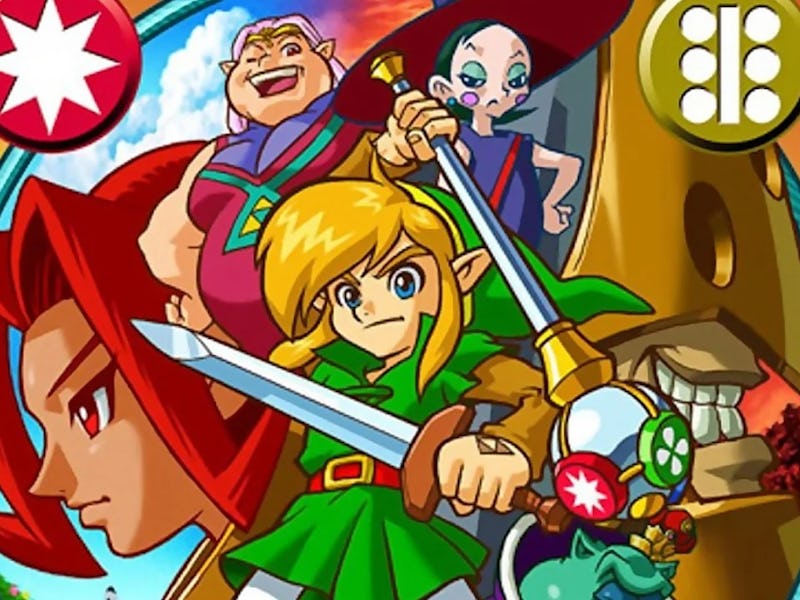Oracle of Seasons and Oracle of Ages Are Switch Online’s Latest Must-Plays
Handheld Hyrule.

The Legend of Zelda is one of the most storied franchises in gaming, but even in that rich history there are a few gems that tend to get glossed over.
No two Zelda games are more overlooked than 2001’s Oracle of Seasons and Oracle of Ages, Game Boy Color entries that took an almost Pokémon-like approach with two versions. (A third installment was planned, but ultimately cancelled.) Both are rock-solid Zelda games with fantastic dungeon design, and a fascinating story that only becomes clear when you experience both sides of the adventure. There’s never been a better time to play Oracle of Seasons and Ages, now that they’re free for Nintendo Switch Online members. (You won’t need the Expansion Pack for this one.)
The Oracle games are most similar to Link’s Awakening, with a top-down perspective and familiar art design. Both games open as the Triforce calls out to Link and summons him to another world — Holodrum in Seasons and Labyrnna in Ages.
The Oracle games have a fantastic aesthetic that makes great use of contrasting color.
In these two worlds, Link meets physical manifestations of the legendary goddesses Din and Nayru, and gets embroiled in a fight against evil. If you beat one game, you’ll get a password to enter in the other version, letting you play it as a “sequel” that unlocks the true ending shared by both games.
Like most Zelda games, the narrative isn’t terribly deep. But both games are a fun romp with tons of memorable and quirky characters, like the apprentice witch Maple and the cute little cat named Mittens and his bumbling owner.
Each game has a slightly different focus — Seasons is very heavy on puzzles while Ages puts a bigger emphasis on combat. The Oracle games shake up the Zelda formula in interesting and are the only mainline games not directly developed by Nintendo (a Capcom subsidiary named Flagship took the reins here instead).
The gameplay loop still revolves around overworld exploration and dungeons, though each game has a key item that needs to be used frequently. The Rod of Seasons lets Link change between the four seasons and affect his surroundings, opening up new pathways and puzzle options. Meanwhile, the Harp of Ages allows Link to travel between the past and the present, also opening new options in the process. There are also a few other items exclusive to each version, like the Slingshot in Seasons and the Switch Hook in Ages.
Link’s animal friends add some unique gameplay elements, with the boxing glove-wearing Kangaroo Ricky a particular highlight.
Link can also recruit three different animal companions that help him traverse otherwise inaccessible areas. Moosh the Bear has little wings that let him hover over holes, Ricky the Kangaroo can punch enemies and jump over gaps, and Dmitri the Dodongo can swim through deep water and up waterfalls. It definitely helps that all three are adorable.
Looking back 22 years later, Oracles of Seasons and Ages were quite experimental at the time, and were all the better for it. The way the two games weave together is fascinating, and not something really explored again. Seasons and Ages are much more than just two version of the same game, they’re an expansive dual experience that manages to feel different, but still retains what makes Zelda special. It’s just a shame the team at Flaghship would never have a chance to develop another brand-new Zelda game before going defunct in 2007.